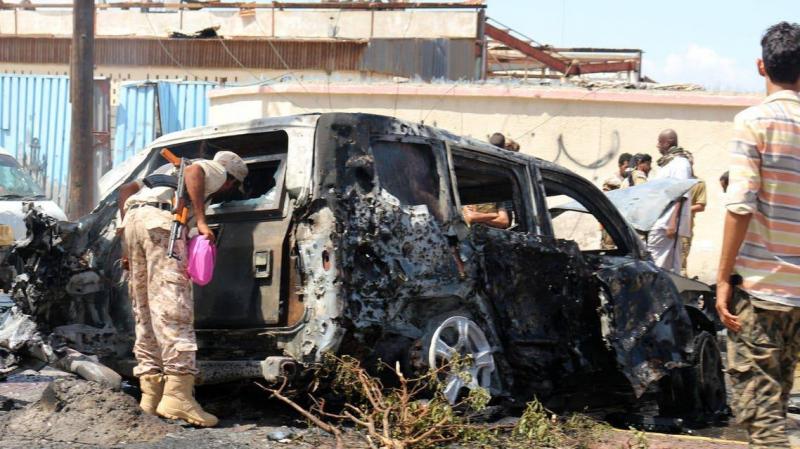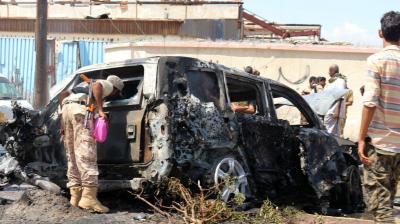Yemen's Minister of Information, Moammar Al-Eryani, condemned today, Sunday, the assassination attempt on the convoy of Aden Governor Ahmed Lamlas and Agriculture Minister Salem Al-Socotry, both members of the Southern Transitional Council. In tweets on his Twitter account, he considered that the explosion today, which coincided with the Houthi escalation in Marib and Shabwa provinces, aims "to confuse the situation and undermine the government's efforts to normalize conditions in the liberated areas."
He emphasized the "need to proceed with completing the security and military implementation of the Riyadh Agreement, and unifying efforts to enhance security and stability and confront terrorism and its organizations." Additionally, he expressed his condemnation and denunciation of the explosion, stating, "We condemn and firmly denounce the treacherous and cowardly terrorist crime that targeted the Governor of Aden and the Minister of Agriculture."
For its part, the Southern Transitional Council announced earlier today that the assassination attempt resulted in the deaths of four companions of the Minister of Agriculture and the Governor, with five others injured, including three civilians. The council stated in a statement that the operation was carried out by a suicide bomber with an explosive-laden vehicle in the city.
Meanwhile, a government source indicated that the attack resulted in the death of the governor's press secretary, his photographer, the head of his security unit, and a fourth companion, in addition to a civilian passerby. It was further reported by Reuters that at least ten others were injured. In response, Yemeni Prime Minister Maeen Abdul-Malik ordered the relevant authorities to conduct a swift investigation into the circumstances of this assassination attempt.
It is worth noting that the Riyadh Agreement, signed in the Saudi capital between the Yemeni government and the Southern Transitional Council in 2019, outlined many military arrangements between the two parties, as well as a ceasefire and the appointment of new governor and security director for the coastal city of Aden, and the formation of a new government. Later, Saudi Arabia provided a mechanism to accelerate the implementation of the agreement, which included several points related to continuing the ceasefire and not escalating tensions between the parties.




